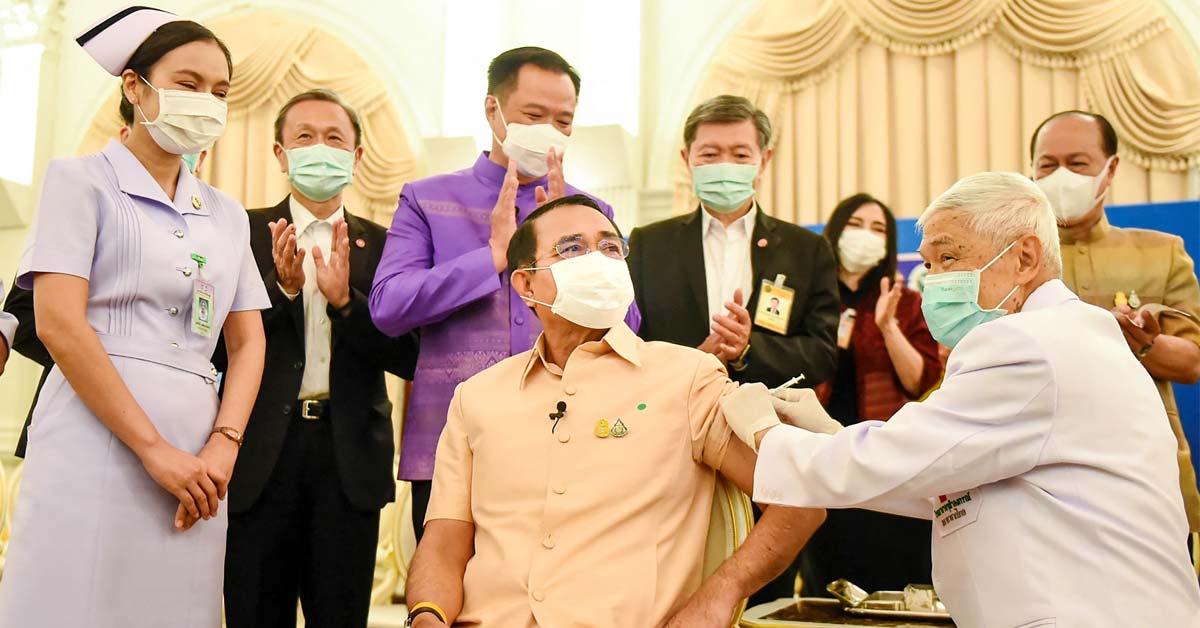Thailand's prime minister on Tuesday received the AstraZeneca vaccine as the Southeast Asian nation began the drug's rollout, lifting a suspension that was triggered by European nations raising safety concerns.
The country became the first outside of Europe to temporarily delay the COVID-19 vaccine after several EU nations - including Ireland, the Netherlands and Denmark - moved to delay it due to reports that some recipients had suffered blood clots.
Thailand is already administering China's Sinovac vaccine, with millions more imported doses expected in the coming months.
But it was expected to add the Oxford/AstraZeneca injection to its vaccine options on Friday, before health authorities abruptly suspended it as a precaution.
By Monday, it had cleared its use after the World Health Organization (WHO), the European Medicines Agency and many countries, including Britain and Canada, declared it safe for use.
"Today, we will start injections on another vaccine. I think it will create confidence for people to get the vaccine," Thai premier Prayut Chan-o-cha said.
The gruff former general's jab was initially scheduled for Friday but it was postponed at the last minute following the delay. The country's political leaders went ahead with their jabs on Tuesday.
"Everyone is fine. I am an example today for having AstraZeneca," the 66-year-old, who was the first person to receive the jab in the Southeast Asian country, said of his cabinet.
WHO safety experts were preparing to meet Tuesday over the vaccine melee as the three largest EU nations - Germany, Italy and France - followed other EU members in suspending the shot on Monday, dealing a blow to the global immunisation campaign.
The vaccine was developed by AstraZeneca and the University of Oxford in Britain, where more than 11 million doses have been administered apparently without any major problems.
Thailand is not set to start its own mass vaccination campaign until June, with more than 60 million shots planned through domestic production of the AstraZeneca vaccine.
But it is vaccinating essential workers and other groups with more than 100,000 AstraZeneca jabs imported for emergency use earlier this month.
AstraZeneca's shot, among the cheapest available, was billed as the vaccine of choice for poorer nations and the clot reports have had an impact beyond Europe.
Indonesia delayed its AstraZeneca rollout on Monday, and Venezuela announced it would not authorise the jab over fears of "complications". - AFP
